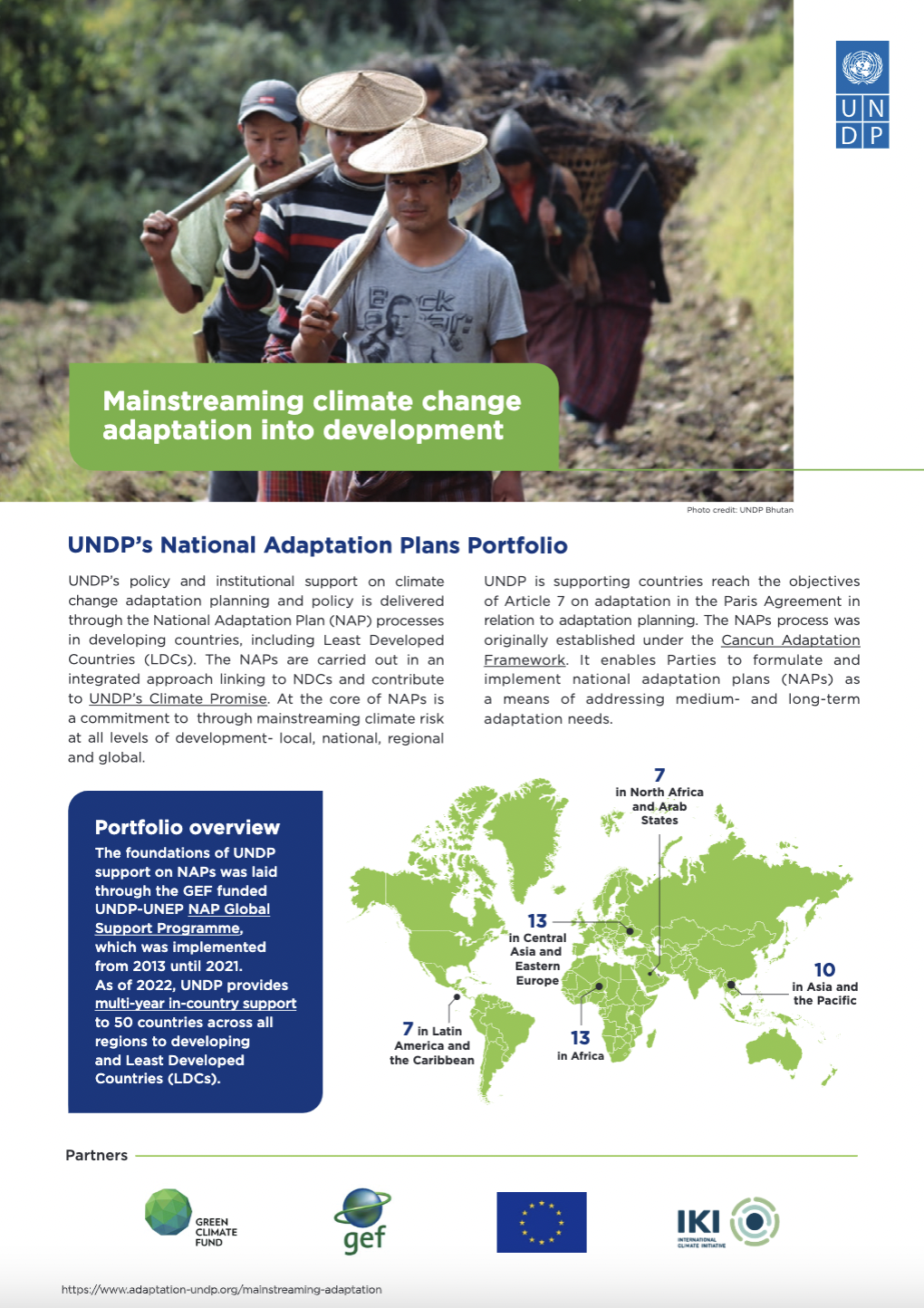This post was originally published on UNDP
UNDP’s policy and institutional support on climate change adaptation planning and policy is delivered through the National Adaptation Plan (NAP) processes in developing countries, including Least Developed Countries (LDCs). The NAPs are carried out in an integrated approach linking to NDCs and contribute to UNDP’s Climate Promise. At the core of NAPs is a commitment to through mainstreaming climate risk at all levels of development- local, national, regional and global. UNDP is supporting countries reach the objectives of Article 7 on adaptation in the Paris Agreement in relation to adaptation planning. The NAPs process was originally established under the Cancun Adaptation Framework. It enables Parties to formulate national adaptation plans (NAPs) as a means of identifying medium- and long-term adaptation needs.





0 Comments